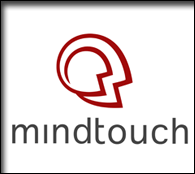Being everywhere and finding advocates
by Eric Norlin on Aug.22, 2008, under general, industry stuff
There’s some buzz going around today about Jason Calacanis’ email send about PR and startups. Like most folks, I largely agree with Jason’s missive, and I’d recommend that startups soak it in. Specifically, though, I wanted to focus in on “#2. Be Everywhere” — wherein Jason says: “During the Weblogs Inc. years I attended every possible event I could.” Now, at first blush, it would seem I’m about to turn this into a “why everyone must come to defrag” post, but I don’t mean it to be that. Rather, I’d like to highlight this point in the most general sense.
When Andre Durand and I were really trying to spread the word about Ping Identity in the early days, we did four things: 1) blog; 2) write substantive whitepapers about large (non-product brochure) issues; 3) network with people relentlessly - and attend every event that mattered.
Over the past few months, I’ve run into some startups that really don’t understand the value of “networking and attending.” Most often, I see this misunderstanding occur in the context of wanting to exhibit at some REALLY big event. The idea, of course, is not a bad one: If I can meet 2000 people (at an expo), I’ll have a better chance of “monetizing” than if I meet only 300, 400 or 500 people. In the early life of a startup, though, I think this is just flat out wrong. Your focus should be quality, not quantity.
Let me relay this via example: the single most important thing that happened in the early life of Ping was attending Esther Dyson’s PC Forum. The event was not cheap (hell, just getting in was tough) - as a startup living on an angel round, Andre and I went and spent nearly 10k — just to go (no sponsorship, etc of any kind)! And the event wasn’t “big” by expo standards (500 people). However, they were the right 500 people. [sidenote: 10k at that point in time was basically 10% of our TOTAL angel funding - ie, not inconsequential.]
How do you define the “right” 500 (or 200, or 300) people? They are the “extreme influencers” (a term I use often) — people who’s social network is a gateway into dozens of other extreme influencers.
What happened to us at PC Forum? Ping went from a startup nobody knew about to a startup that analysts covered, journalists wrote about, big companies took meetings with, and VC funded (our Series A came *directly* from meeting Jeremy Allaire at PC Forum). The value was evident. I probably only actually talked to 20 people in 3 days. But in the weeks following PC Forum, those 20 people introduced me to 100’s of folks that mattered to our business.
The right people are people with influence that *love* to become advocates.
In a sense, then, “being everywhere” is about being everywhere with those kinds of people. All it takes is one “you should meet eric, he’s a great guy” intro - and the next thing you know you have thousands (literally *thousands*) of meaningful downloads (we were in the open source, down-loadable software biz at the time). Sharing breakfast with the CTO of General Motors, a VC, Jeff Bezos and Kevin Maney (tech reporter for USA Today) will do more for your startup than “meeting” 2000 people at an expo.
Here’s what I’m not saying: focus only on “famous” people. Often the most important intros come from folks that aren’t famous. But an “extreme influencer” crowd will be happy to get to know you, and even more happy to tell everyone they know about you (if you impress them).
So, the next time your startup thinks about early PR and influence-peddling, remember that “being everywhere” really means finding advocates. And its hard to find advocates in a crowd.









